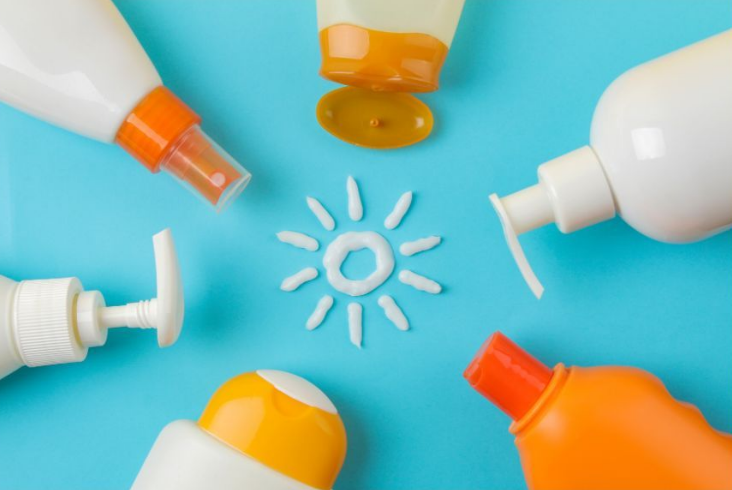Sunscreen Showdown: Debunking Myths about Sunscreen and Fertility

Lately, there has been some buzz about the potential impact of certain chemicals in chemical-based sunscreens on our delicate hormonal balance and fertility. But fear not, because we're here to shed light on the matter and empower you with the facts.
So, is sunscreen going to affect your fertility?
While preliminary research has hinted at a possible connection between sunscreen chemicals and the endocrine system, it's crucial to note that there is currently no solid evidence to support harmful impacts on female fertility. Most of the limited studies conducted so far have primarily focused on male fertility, leaving us without concrete recommendations for women to bid farewell to their beloved chemical-based sunscreens in the name of fertility preservation. So, feel free to slather on that SPF with confidence!
there is currently no solid evidence to support harmful impacts on female fertility.
Vitamin D: The Sun's Gift and the Hormonal Balance
Ah, the mighty Vitamin D. We acquire this vital nutrient through various sources—food, sunlight, and supplements. Rest assured, our bodies are cleverly designed to store Vitamin D in our fat cells, assisting the maintenance of sufficient levels throughout the year. However, it's essential to approach sunlight exposure with caution when it comes to boosting Vitamin D levels. Deliberately subjecting unprotected skin to UV rays in the hopes of obtaining a Vitamin D boost is not recommended. The potential risk of developing skin cancer far outweighs any benefits that could be derived from a slight increase in Vitamin D. So, let's be smart and prioritise our skin's health while exploring other avenues to meet our Vitamin D needs.
If you’re curious to understand how UVA and UVB rays and their impact on our precious skin, what SPF numbers really mean and the difference between mineral and chemical sunscreens….. read on!
These radiant forces have the potential to disrupt the delicate DNA within our skin cells, setting forth a series of consequences that demand our attention.
UVA Rays: Seeking the “Glow”
Ever wondered where your tan comes from? Look no further than the work of UVA rays. As they penetrate the layers of our skin, UVA rays not only bestow upon us the coveted tanning effect but also bear responsibility for the emergence of wrinkles and signs of aging. Beware, for prolonged exposure may lead to lasting damage.
UVB Rays: When Beauty Meets Burn
These potent rays are infamous for inflicting sunburn upon our unsuspecting skin, serving as harbingers of an even greater menace—skin cancer.
Decoding SPF: What do the numbers mean?
In its simplest form, a higher SPF rating signifies an increased threshold for UVB rays to induce sunburn. Picture a sunscreen with SPF50 as a formidable fortress shielding your delicate skin from the solar onslaught, surpassing the defence provided by a mere SPF15.
However, higher SPF is not the only contributor of enhanced sun protection. To ensure you are getting the optimal coverage from your sunscreen be sure to choose a sunscreen that also provides protection against UVA rays. These sunscreens will usually state on the label that they have UVA protection, or they may be described as a broad-spectrum sunscreen– meaning that it will provide protection against both UVA and UVB rays. And remember sunscreen only works when it stays on the skin. So, if swimming or high sweating activities, consider water resistant or sports formulation. And also, reapply at periodic intervals.
So what’s better….Mineral or Chemical
When it comes to sun protection, there are two main types of sunscreens: mineral-based and chemical-based. Mineral-based sunscreens create a physical barrier using ingredients like titanium dioxide or zinc oxide, blocking or scattering harmful rays. They offer great protection but may require more frequent application and sometimes leave a white cast. On the other hand, chemical sunscreens absorb UV rays and undergo chemical changes to reduce skin damage. They are easy to apply, available in spray form, and leave no sticky residue. However, concerns exist regarding the potential absorption of chemicals into the body.
Choosing the right sunscreen depends on personal preferences. If you prioritise long-lasting protection and don't mind occasional white residue, mineral-based sunscreens are a good choice. If ease of application and a residue-free feel are important to you, chemical sunscreens may be more suitable.
Considering the environmental impact, non-nano, mineral-based sunscreens are a better option for use in the ocean. They are less harmful to marine life compared to certain chemical sunscreens, which have been banned in some ocean communities.
Ultimately, the choice of sunscreen should align with your needs and priorities. Whether you go for mineral-based or chemical-based sunscreen, the goal remains the same: to keep your skin radiant and safe while being mindful of the environment.
Consult Your Healthcare Provider
If concerns about your Vitamin D levels are keeping you up at night, fret not. The best course of action is to seek guidance from the experts—your trusted healthcare provider. They can assess your individual needs, run tests if necessary, and provide tailored recommendations to ensure your Vitamin D levels are in balance. Remember, knowledge is the key to taking charge of your well-being.

